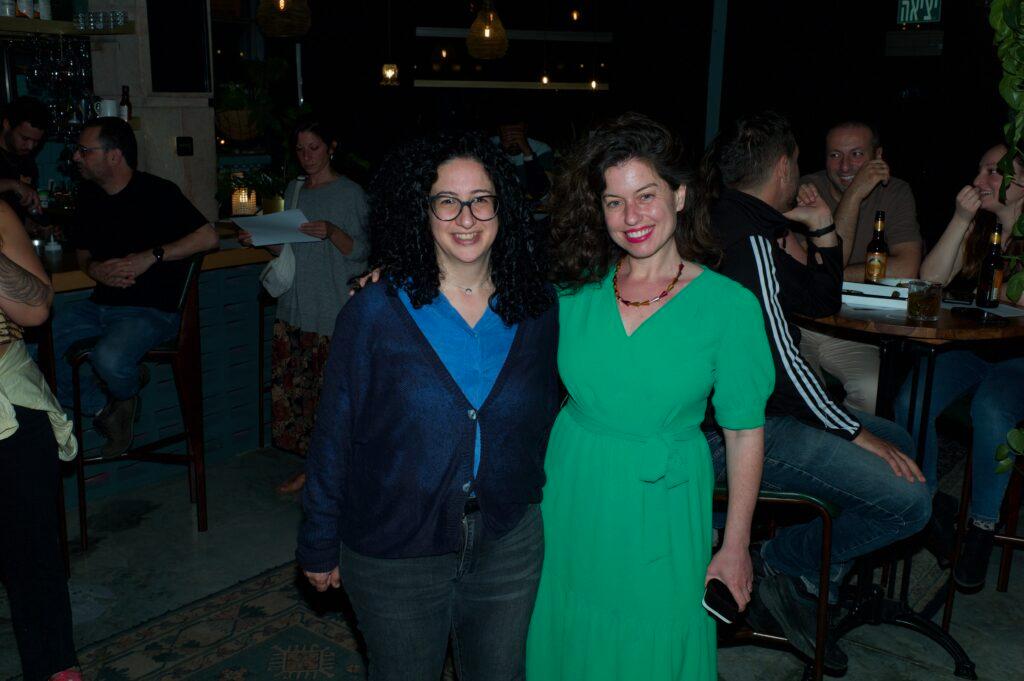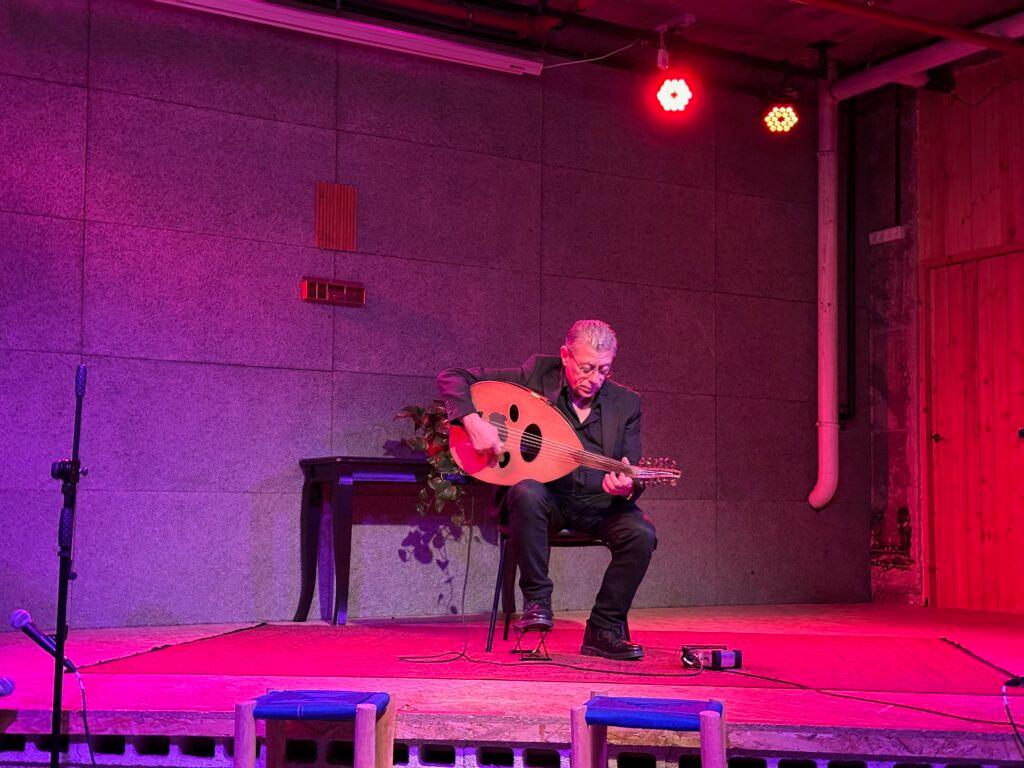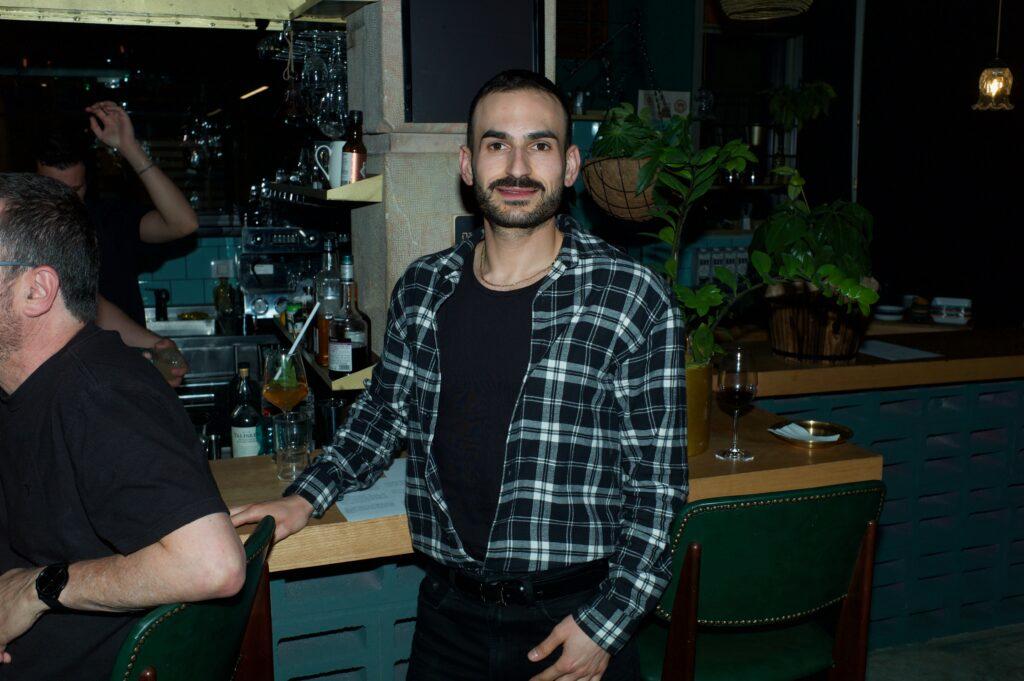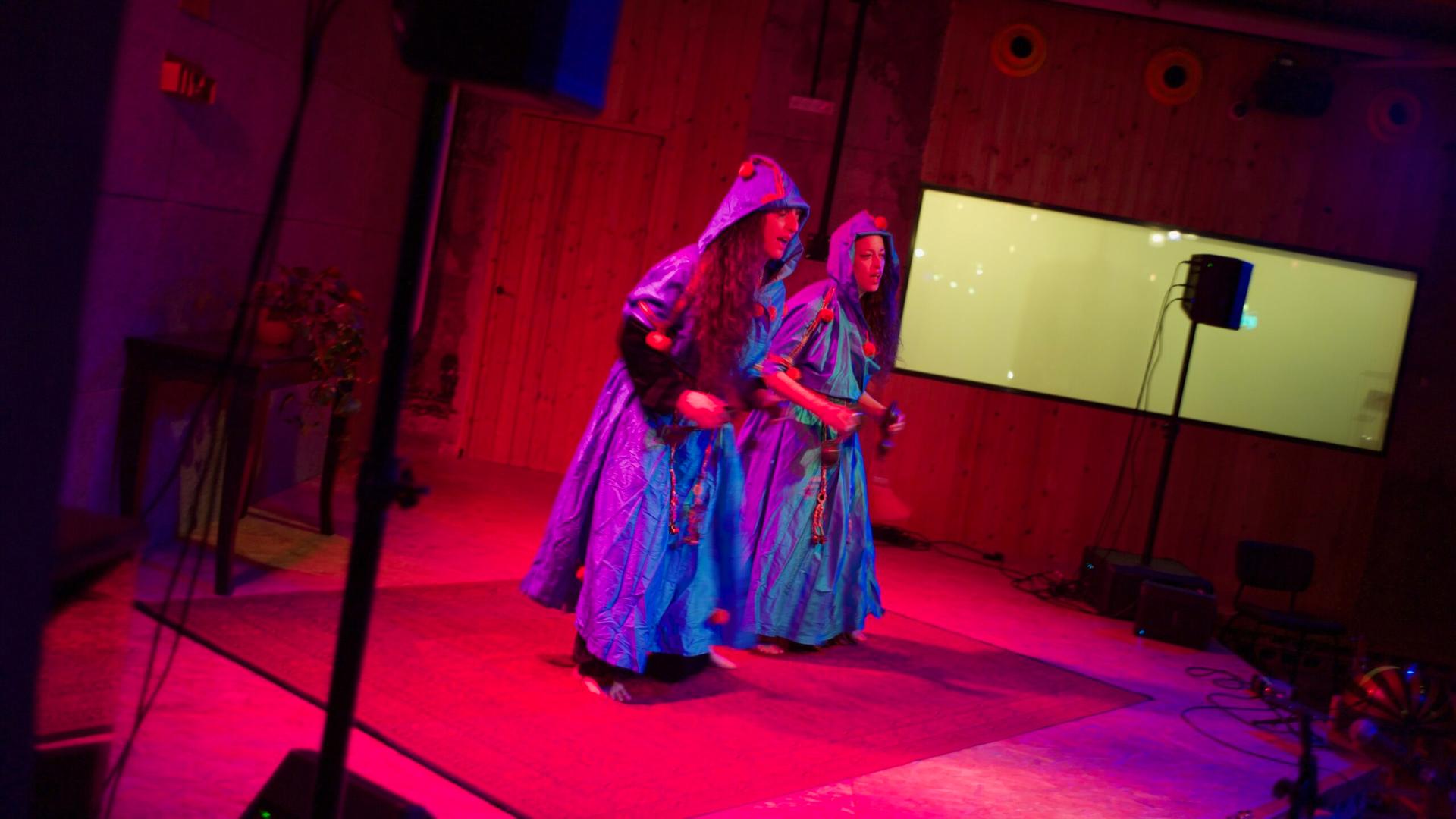‘Sacred refuge:’ This cultural center provides a safe space for Jews and Arabs in Jerusalem
It’s a cliche: Travelers come to the Middle East and are struck by the tension of a multidecade conflict between Israelis and Palestinians.
For years, isolated pockets of quiet resistance in Jerusalem have tried to bring together people from both sides of the conflict, but the Oct. 7 attacks seem to have put a lot of that resistance on indefinite hold.
But since then, one place is trying again to establish common ground between Israelis and Palestinians: FeelBeit, an event space and bar in Jerusalem.
Located on the seam line between east and west Jerusalem, FeelBeit is an Israeli-Palestinian arts house and incubator, according to one of its managers, Karen Brunwasser. Each Wednesday night, the venue gives audiences a few hours of escape from the latest news engulfing the lives of Israelis and Palestinians.
The venue intentionally sits on the line that divides Arab East Jerusalem and Israeli West Jerusalem.
In both Arabic and Hebrew, bayt or beit means “home,” so “FeelBeit” literally means “feel at home.”
Brunwasser and Riman Barakat, a fellow manager, represent both communities.
“This is our sort of sacred refuge,” Brunwasser said.

FeelBeit is an offshoot of Jerusalem Season of Culture, another organization that runs a summer festival in the city. The festival calls itself a laboratory for connection between people of different backgrounds, but it has struggled in the past against deeply entrenched opinions about the conflict.
But Brunwasser and Barakat felt like they had a responsibility to continue hosting events amid the increased tension after Oct. 7.
“We understood how scared people are because we, ourselves, were afraid in the beginning,” Brunwasser said. “We understood how scary it is to walk into a space when you think, ‘What is that person on the other side thinking,’ and we understood that people were terrified to talk.”
That’s where they got the idea to call this evening of the arts “No Words,” a stealth tool to bring people together. There have been eight or nine “No Words” shows since the Israel-Hamas war began.

According to Barakat, the audience every week is a mix of Israelis, Palestinians and people from other international backgrounds. And every show features Israeli and Palestinian artists alongside one another on stage.
In fact, Barakat said it has actually been easier to coordinate joint performances with Israeli and Palestinian artists since the war began.
“And that’s something that has blown our mind,” she said. “Post-Oct. 7, like from the artists, from the audiences [that] are here, and are performing and choosing to do so, and that has been [a] very powerful reality for us.”
Zudhi Naguib is another FeelBeit member who started working on communications for the group about five years ago. He said he felt instantly at ease, partly because of the violence experienced growing up as a Palestinian in Jerusalem.
He described the nature of this violence: “Eh, getting attacked by extremist Jewish Israelis, by being attacked by extremist Palestinians. Like I was attacked from both sides.”
Naguib said FeelBeit gave him a home.

“It actually shows me that Jerusalem is really much bigger than what I thought before. It shows me that there’s space for everyone. It was the trust that we succeeded to build with the people who come to FeelBeit, it really was what rescued us after the seventh of October,” he said.
After Oct. 7, Naguib felt too scared to leave his house. He didn’t speak to anyone for five days. It was the FeelBeit community that finally helped him.
Naguib drove to the home of his boss at FeelBeit, who wanted him to join her at a kibbutz — an Israeli commune — where the parents of their mutual friend Oz had been killed in the attacks.
He was uncertain, but he was finally convinced. Naguib recounted Oz’s response to his condolences: “It’s not my sorry, it’s ours.”
“And he told me, ‘I don’t want anyone to use my mom and dad’s blood for revenge,’” Naguib added.
For Naguib, FeelBeit is special because it takes action to build peace between communities in Jerusalem.
“FeelBeit is not about sitting and waiting for hope,” he said. “We will build the hope.”
Our coverage reaches millions each week, but only a small fraction of listeners contribute to sustain our program. We still need 224 more people to donate $100 or $10/monthly to unlock our $67,000 match. Will you help us get there today?
